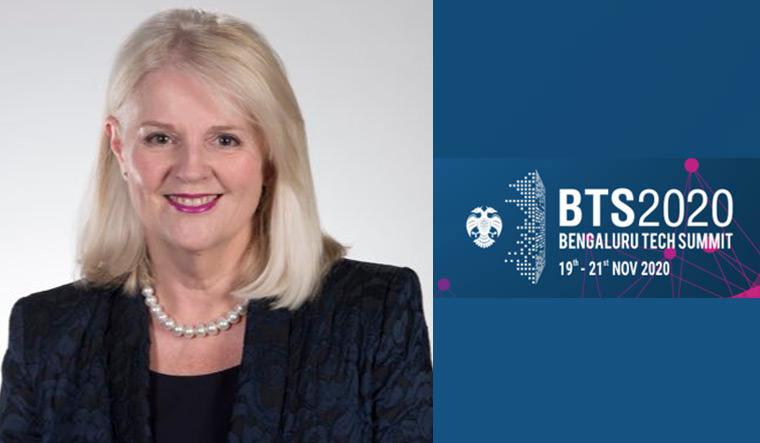India and Australia are great believers in technology, and have a lot to gain in cooperating to develop the best ideas of both our nations. At the same time neither of the countries will let the COVID-19 crisis hold us back from realising these ideas, remarked Karen Andrews, the Minister for Industry, Science and Technology, Australia, while speaking at the ongoing Bengaluru Tech Summit.
Andrews said that it is time for India and Australia to deepen our already strong bonds, as demonstrated in the commitment of both the country's prime ministers to a comprehensive strategic partnership.
She said that India and Australia can innovate together in a post-COVID world. “COVID-19 has compelled industry, researchers, governments and nations to work together to respond to the health and economic impacts of the virus. The pandemic has highlighted the importance of science and technology in keeping us connected and finding solutions to the challenges we have faced,” remarked Andrews.
She mentioned the strong connection Australia and India have in the cyber security space and have a comprehensive strategic partnership that provides opportunities for cooperation on cyber security, critical and emerging technologies and the digital economy.
“Our aim is to position Australia as a leading digital economy by 2030. The Australian government is investing around $800 million to help our businesses improve their digital capacity. Upgrading cyber security and online skills are particularly important for small and medium enterprises, which comprise 98 per cent of all Australian businesses,” she added.
She further informed that Australian government’s Cyber Security Strategy 2020 is helping to build cyber career pathways and create jobs to meet the estimated need for an additional 17,000 cyber professionals across the economy by 2026, from a base of 20,500 in 2018. She also added that the Australian Government is also investing in artificial intelligence, blockchain and quantum computing.
Later in a panel discussion “From Cyberspace to Outer Space: Innovating with Australia in a post-COVID world” Dr Tobias Feakin, Australia’s Ambassador for Cyber Affairs and Critical Technology, explained how government and industry were building resilience against malicious cyber activity, which had rapidly evolved during the COVID-19 pandemic.
“The Australia-India Framework Arrangement on Cyber and Cyber-Enabled Critical Technology Cooperation, agreed in June, is enhancing how we collaborate to promote and preserve an open, free, safe and secure internet,” said Feakin.
He further explained that the framework sets out practical actions to enhance digital trade, strengthen cyber security and enhance both countries’ ability to address rapid technological change and also underpins a new grants program that will support research collaboration and capacity building between Australian and Indian institutions, in areas such as artificial intelligence, quantum computing and big data.
During the discussion Professor Michelle Simmons AO the Quantum Physicist and 2018 Australian of the Year also provided an overview of Australia’s research and expertise in quantum computing, and previous collaboration with the Bengaluru based Indian Institute of Science (IISc).
During the panel discussion a reference was also made about Australia's thriving space economy that is projected to grow from $3.9 billion today, to $12 billion by 2030 and had the potential to create 20,000 new jobs.
“Australia has many unique advantages in space, from our geographical position in the southern hemisphere, to our wide open spaces and relatively low light pollution, to our expertise in satellite data applications. This makes Australia an ideal partner for space debris tracking and space traffic management activities, world leading earth observation services, efficient rocket technology and launch services and remote asset management,” remarked Lloyd Damp the CEO of Southern Launch. This company provides rocket launch infrastructure and associated commercial launch services in Australia.





